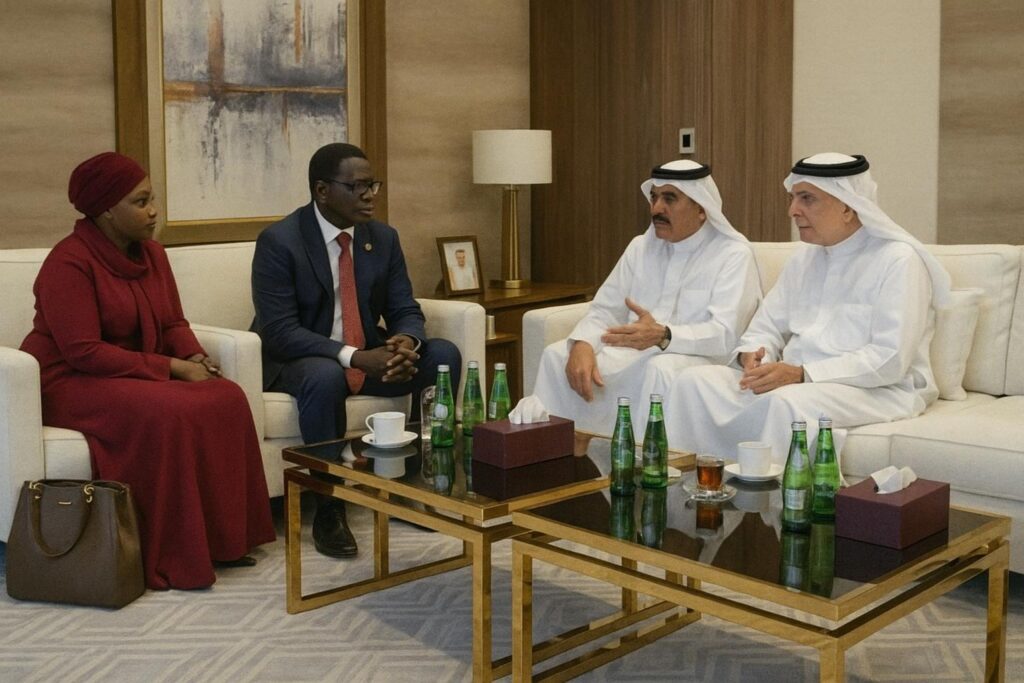Doha Sets Stage
Doha’s business circles signalled fresh intent this week as Qatar Chamber held back-to-back talks with senior ministers from Malawi and South Sudan, mapping a path for stronger trade and investment ties between the Gulf state and two rising African markets.
Qatari Appetite for African Growth
First Vice-Chairman Mohamed bin Ahmed bin Twar Al Kuwari told the delegations that Qatari companies are scanning the continent for scalable projects in energy, agriculture and infrastructure, adding that the Chamber stands ready to “connect capital with ideas”.
He underlined Doha’s strategy of diversification beyond hydrocarbons, arguing that partnering with emerging African economies answers both parties’ needs for markets, skills and finance.
South Sudan’s Investment Pitch
Foreign Affairs Minister Monday Semaya K. Kumba described Juba’s post-conflict reforms, emphasising tax incentives, land access and what he called a “guaranteed repatriation of profits” to lure Gulf investors into agribusiness and oil-service ventures.
Qatar Chamber board member Mohamed bin Ahmed Al Obaidli floated the idea of a joint business council, insisting that only “credible, active entrepreneurs” should sit at the table to secure sustainable partnerships.
Malawi’s One-Stop Promise
Industrialisation Minister George Patridge highlighted Lilongwe’s one-stop investment window, claiming it slashes paperwork and accelerates licensing for foreign investors keen on power, tourism and digital services.
Al Kuwari responded that Malawian opportunities align with Qatar’s Africa roadmap, hinting at exploratory missions by Doha-based firms before mid-2026.
Why the Gulf-Africa Courtship Matters
Economists in Doha say Gulf liquidity could narrow Africa’s infrastructure funding gap, while African demographics offer growth prospects absent in saturated markets.
However, they caution that political stability, transparent regulation and reliable logistics will determine whether the memoranda signed translate into bricks, mortar and jobs.
Next Steps on the Doha Desk
Both delegations invited Qatari executives to visit Juba and Lilongwe early next year; the Chamber is expected to compile sectoral dossiers for potential missions.
If follow-through matches Thursday’s optimism, the Gulf and the Great Rift could soon share more than flights across the Red Sea; they could share profits and, perhaps, prosperity.


